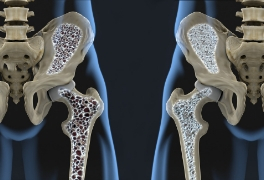Oral Health Is Overall Health
Your teeth and gums hold important clues to other health issues. Research shows that poor oral health can be a sign of heart disease, stroke, diabetes, premature births, and osteoporosis. So if you’re interested in maintaining good overall health, as well as your smile, visit your dentist for a checkup and cleaning at least twice a year.
The Importance of Regular Oral Care

Regular dental exams not only help maintain healthy teeth and gums, they allow your dentist to be on the lookout for developments that may lead to future health problems, including oral cancer.
Be sure to inform your dentist about changes in your oral health, including any recent illnesses or chronic conditions, even if they seem unrelated to your mouth. Also, provide him or her with a current list of all medications you are taking, including prescription and over-the-counter. Finally, make certain to follow your dentist’s recommendations, including any home care regimen.
Regular brushing, flossing, and visits to the dentist will help you maintain a healthier mouth, as well as an overall healthier you.
Heart Disease and Stroke

Did you know that the bacteria in dental plaque that develops on your teeth can affect other parts of your body, such as your heart and lungs? A potentially fatal disease called bacterial endocarditis—a condition in which the lining of the heart and heart valves becomes enlarged—is also linked to plaque, as is chronic obstructive pulmonary disease, more commonly known as COPD. People with periodontal (gum) disease are nearly twice as likely to suffer from heart disease, according to the American Academy of Periodontology.
In addition, a study conducted by the Boston University Henry M. Goldman School of Dental Medicine in 2006 stated that people who are missing some or all of their teeth due to periodontal disease are at an increased risk for having a stroke.
Because research shows a very strong link between healthy gums and a healthy heart, it’s very important to take good care of your gums. Gum disease is caused by plaque buildup. Early signs of gum disease include bleeding or puffy gums, bad breath, mouth sores, and receding gums. You can prevent plaque buildup by brushing at least twice a day and flossing every day, along with visiting your dentist every six months. If you notice any signs of gum disease, contact your dentist right away.
Osteoporosis

There appears to be a direct link between the health of a person’s bones and their oral health. Osteoporosis affects about 10 million Americans, with approximately eight million of them being women. Osteoporosis is a disease that weakens bones and increases the risk of fractures. Bones become fragile as bone mass decreases and bone tissues deteriorate. This can make people more vulnerable to fractures, especially of the hip, spine, and wrist.
However, studies have also suggested that there is a connection between osteoporosis and bone loss in the jaw. Researchers believe that osteoporosis may lead to tooth loss because the density of the jaw bone that supports the teeth may be decreased, which means that teeth no longer have a solid foundation.
Osteoporosis that weakens the jaw may lower a person’s defense against bacteria that affect the gums, which can lead to periodontal disease. The good news is that osteoporosis is preventable for most people. In addition to good oral home care and regular dental visits, it’s important for everyone, but especially women, to receive the recommended amounts of calcium and vitamin D, exercise regularly, and avoid smoking and excessive alcohol use.
Diabetes

Diabetes is a disease in which blood glucose levels are above normal. This can lead to serious health problems, including heart disease, blindness, kidney failure, and even leg or foot amputations. However, there are also some oral health implications associated with diabetes. The most common and potentially harmful oral health problems are gingivitis and periodontitis, which is a more severe form of gum disease where the gums and bone supporting the teeth become seriously damaged and result in tooth and bone loss.
Patients with inadequate blood sugar control appear to develop periodontitis more often and more severely and lose more teeth than those who control their diabetes. And because diabetes reduces the body’s resistance to infection, the gums are among the tissues likely to be affected. If you have diabetes, it’s important that you also maintain good oral hygiene and visit your dentist regularly to prevent periodontal disease and other health complications from developing.
Gum Disease and Pregnancy

Recent studies have also shown a relationship between gum disease and preterm, low–birth-weight babies. In fact, pregnant women with periodontal disease may be seven times more likely to have a premature baby. Low–birth-weight babies have a higher incidence of breathing problems, anemia, jaundice, mental retardation, cerebral palsy, congestive heart failure, and malnutrition. The likely cause of this is a labor-inducing chemical found in oral bacteria called prostaglandin. Very high levels of prostaglandin are found in women with severe cases of periodontal disease.
Additionally, gingivitis is especially common during the second to eighth months of pregnancy and can result in red, puffy, or tender gums that bleed when you brush your teeth. These problems are caused by an increased level of the hormone progesterone in your system. That’s why if you’re having a baby, it’s very important to have regular dental checkups. During your pregnancy, your dentist may recommend more frequent cleanings to help you avoid any potential problems. And it’s not only during pregnancy when women are at a higher risk for oral health problems. During other times of increased hormone levels, such as puberty, menstrual cycles, and menopause, women may also be more susceptible to plaque and bacteria.

